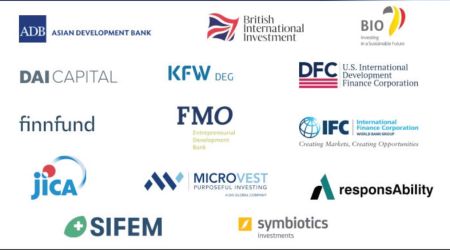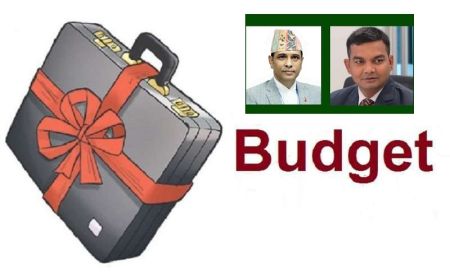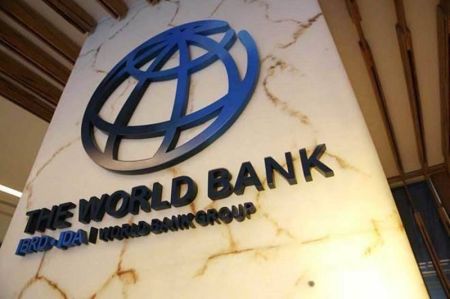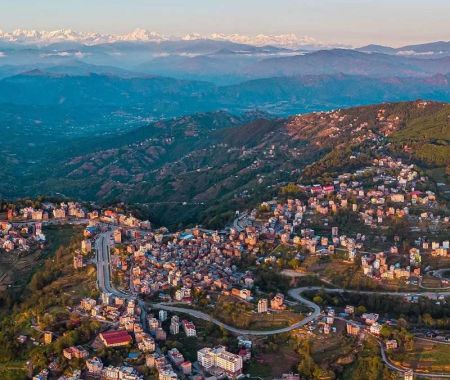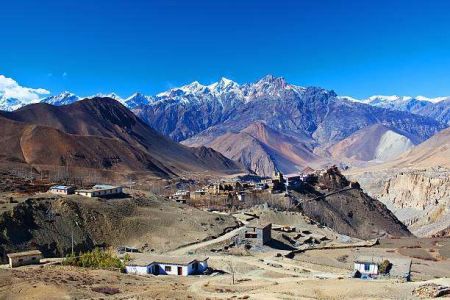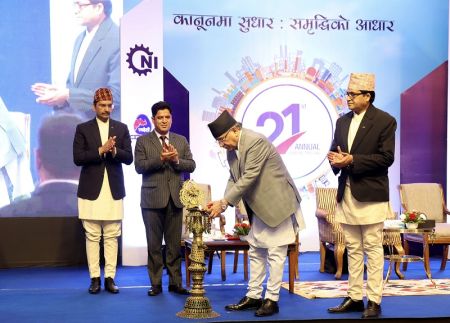New Act Aims to Curb Industrial Strikes
The new Industrial Enterprise Act, presently in the offing, is likely to address the issue strikes in the Industrial sector. “The act does not directly prohibit strikes. But it has provisions that discourage such activities and aim at ensuring sound industrial environment,” a source at the Ministry of Industry (MoI) said while informing that the act has been already approved by the Ministry of Law.
“There are special provisions in the Industrial Enterprise Act that will address most of the issues faced by the industrialists,” Minister for Industry, Karna Bahadur Thapa said adding, “With the implementation of the proposed Industrial Enterprise Act, scenario of the industrial sector will gradually improve.”
Elaborating on the details of the Act, Yam Kumari Khatiwada, Spokesperson at the MoI, said that the Act has made efforts to address issues ranging from registration process to market supply, provided new facilities to industries and has focused on improvising services provided by the government.
“The Act also has provision of punishment to those who are involved in wrong activities along with the provision to reward the responsible entrepreneurs,” she said adding that it also has provisions to collect details of sick industries. However, Pradeep Jung Pandey, president of the Federation of Nepalese Chamber of Commerce and Industries (FNCCI), said that industrialists are more concerned about the implementation of the Act rather than what’s in the Act.
Carpet and Readymade Garments’ Export Surge
Woollen carpet and readymade garments exports increased by almost 50 per cent by the middle of April of the current fiscal year. Woollen carpets worth Rs. 5.49 billion and readymade garments worth 4.02 billion were exported during the said period, the third quarter report of Trade and Export Promotion Centre (TEPC)’s stated.
The report added that the exports of woollen carpet increased by 39 per cent and that of readymade garments increased by 46.4 per cent.
Due to significant rise in the export of prioritized goods, the country’s net export has improved by 20 per cent reaching to Rs 68.20 billion.
The fact has raised hopes to meet the government and industrialist’s target of exporting 100 billion rupees worth goods this fiscal year. Polyester yarn, lentils, textile, iron, steel, handicrafts, noodles, pashmina shawl and medicinal herbs were other goods that were exported the most.
Nepal’s goods are mainly exported to India, United States of America, Germany, China, Bangladesh, U.K, Afghanistan, France, Turkey, Japan, Italy, Canada, Australia and Thailand.
Banks Making Collective Investment in Hydropower
Banks have started making collective investment in hydropower projects. After the mandatory provision of Nepal Rastra Bank (NRB) for banks to invest 12 percent of their total portfolio in energy and agriculture, banks now have started investing jointly in hydropower projects. “As hydropower projects require huge capital, banks are forming consortium to invest in such projects,” says, Bhaskar Mani Gyawali, spokesperson for NRB. “It takes Rs 150-160 million to create capacity to generate 1 MW of electricity,” he says, “The investment of one or two banks alone is not enough for hydropower projects.” It is learnt that banks are charging 12-13 per cent interest for loans to hydropower projects. Recently nine banks have invested in the 25 MW Upper Dordi ‘A’ Hydropower Project. With the leadership of Nepal Investment Bank Limited (NIBL), Nepal Bank, Global IME bank. Century Commercial Bank, Grand Bank Nepal, NIDC Development Bank, Prabhu Development Bank, H and B Development Bank and NDEP Development Bank have invested collectively in this project.
Likewise, Global IME Bank and Macchapuchhre Bank have invested Rs 700 million in Daraudi ‘A’ Small Hydropower Project of 6 MW. Similarly, Clean Energy Development Bank, Janata Bank and Yeti Development Bank have agreed to invest Rs 470 million in the Chakekhola Small Hydropower Project of 2.83 MW.
Bankers say they are willing to invest in other hydropower projects too. According to Macchapuchhre Bank, they are planning to increase their investment in the coming days in appropriate and attractive hydropower projects.
According to NRB, by the end of the third quarter of the current fiscal year, about Rs 25 billion has already been invested in the hydropower sector. Banks have started keeping hydropower in their priority list lately. According to energy specialists, one reason behind the increasing attraction of banks towards the hydropower sector is the success of the projects banks have invested in.
Real Estate Entrepreneurs and Developers Felicitated
Homeland Media has recently felicitated different housing developers and companies with the ‘Asian Paints Homeland Real Estate Award’. Sponsored by the Asian Paints, the awards aimed encouraging well-managed housing in Nepal.
Binod Chowdhary, chairman of Chowdhary groups, Ichchya Raj Tamang, chairman of Civil Homes, Bijaya Raj Bhandari, managing director of CE groups, Sumit Kumar Agrawal, chairman of Sun Rise Developers, kalu Tamang, chairman of Show Road Real Estate and Min Man Shrestha, Chairman of Downtown Housing were awarded on the occasion.
Likewise, many developers and companies such as Astra Development Apartment, Bajra and Shangrila Residency, Balaji Investment Pvt. Ltd, CG Properties, Civil Homes, Comfort Housing, Downtown Housing, Chitwan Gurans Investment and Developers, Clean Developers, Valley Homes Pvt. Ltd and Green Hill were also honoured with the award.
Along with them housing companies like the Road Show Real Estate, Imperial Developers, Royal Orchid Developers, Shangrila Housing, Sunrise Developers, Varun Developers, Westar Properties, White House Multi- Purpose, Nepal Land and Housing Association, Gandaki Land and Housing Development Association and Narayani Land and Housing Business Development Association were also honoured during the event.
FM Stresses on Enhancing Contractors’ Capacity
Finance Minister Dr Ram Sharan Mahat has called on construction entrepreneurs to speed up the development projects by upgrading their professional capacities to international standard. Speaking to the secretaries of six ministries and construction entrepreneurs at the Ministry of Finance (MoF), recently Dr. Mahat said that the capacity of construction entrepreneurs must be upgraded to meet the requirements of the upcoming bigger development projects.
“Enhance your capacity first”, he said, “Local contractors have not been able to work effectively even in small projects, how can they work for big projects, which will be coming soon” Referring to the development projects like Sikta Irrigation Project, Tamakoshi Hydropower Project, Alternative International Airport and Kathmandu-Nijgadh Fast Track, which the government has started on its own resources, Dr. Mahat informed that construction of similar large hydropower projects would begin soon with financial support and involvement of International Finance Corporation (IFC).
He informed that the government is making huge investments in infrastructure development through the support of donor agencies. He said that for domestic contractors to handle these projects, it is necessary for them to upgrade the capacities. It will help in minimizing government’s dependency on foreign contractors to develop the projects.
On a different note, Minister Dr. Mahat said that issues surrounding the Public Procurement Act have been taken for discussion to the prime minister’s office and assured that the government will address the concerns and incorporate suggestions in it. He asked the contractors to complete their current projects within the given timeframe and reminded them that billions of USD received in aid from Asian Development Bank (ADB) have been returned due to failure of contractors to meet the deadlines. Responding to concerns of the participants, Dr. Mahat said that his ministry is ready disburse the budget if it’s causing delay in large projects. “However, contractors must complete those projects by the end of fiscal year,” he stressed.
Thapa wins Turkish Airlines Everest Golf Cup
KNS Thapa has won the Turkish Airlines Everest Golf Cup played at Gleneagles design Gokarna Golf Club on 24th May. Playing with 13 handicap, Thapa scored 41 points as winner. He received a trophy and Kathmandu - Istanbul business class return air ticket. Tashi Dong scored 34 gross points and won the gross category and received the same prize as Thapa. Tashi also bagged most birdies award with 3 birdies on count back.
With 40 points, Rajendra Shrestha finished runner-up on the count back, and was tied with Sameer Acharya. Shrestha played 18 on the front nine and 22 on the back nine. Acharya scored 23 on the front nine and 17 on the back nine. Acharya took second runner-up trophy.
Lobsang Tashi received runner-up prize in gross category and scored 32 gross points. Puspa Rai won the ladies title with 38 points. Rita Thapa finished second in ladies category with 31 points. Tenzing Palden was the Junior Winner with 41 points. His nearest competitor was Aditi Ghimire, who scored 38 points. Min Bahadur Raut scored 38 points to win the best senior award. Norbu Sherpa bagged longest drive and Mahendra Mainali won the closest to the pin prize.
A total of 97 players took part in the tournament sponsored by Turkish Airlines. The event was played on stableford format with 7/8 handicap.
Credit/debit Cards Users Multiplying
The number of credit and debit cards users in Nepal is increasing exponentially. Nepal Rastra Bank’s (NRB) latest data reported a significant growth in the trend. The report claimed a total of 7, 99,043 debit/credit cards were added to Nepal’s financial system within a year’s time.
In February 2013 the number of debit/credit cards was 3,010,506 but by the end of January 2014 the number soared to 3,809,549. People’s inclination towards e-banking has led to the increase in the number of debit/credit cards, said Prithvi Shrestha, acting deputy CEO of Janata Bank.“As cards are easily accessible, people prefer to use cards instead of carrying cash with them.”
Increasing competition between banks and financial institutions (BFIs), has led to the growth of competition between them in terms of the facilities they provide to customers. NRB’s data reveals the number of debit cards and credit cards issued within February 2013 and January 2014 to be 779,235 and 19,808 respectively.
Till last year the numbers of debit cards issued by commercial banks were 2,647,782. This increased to 3,371,282 by February this year, the report claimed. Similarly, the number of credit cards users has risen to 54,064.
There has been hefty growth in the number of debit cards provided by the development banks as well. The number of users in the segment has reached 347,623. Finance companies, on the other hand, have issued 36,580 debit cards till the February this year. However, both of these types of BFIs are yet to provide credit card facilities to their customers.
Nepali Corporates Lack Transparency: CTR 2014
An international study has shown that it is difficult to get informative news about the Nepalis corporate sector. The Corporate Transparency Report – 2014 released by the International Consortium of Investigative Journalists (ICIJ), an international organisation of research journalists, on May 13th concludes that Nepalis journalists have weak accessibility on corporate information.
The report ranked Nepal in 110th position out of the 215 countries accessed for the study. It has claimed that even the government lacks sufficient information about the sector and the little information it has, is difficult to access.
Nepal scored only 41 out of the 100 points, an average of three categories, media (40), legal cases (40) and corporate houses (42). Nepal lags behind all South Asian countries in terms of Right to Information. India secured 14th position in the list with 69 points while Bangladesh was placed in the 56th position with a score of 56. Likewise, Afghanistan too is 7 steps ahead than Nepal in the list. Similarly, Pakistan with the score of 51 positioned second in the South Asian countries while Sri Lanka is in 69th position. However, Bhutan and Maldives lagged far behind Nepal and secured 180th and 152nd position respectively.
Likewise, New Zealand has topped the list scoring number one with 86 marks. China has scored 20th position defeating not only India but America and Canada also. Likewise, Russia is in 23rd position in the list with Britain, Australia, France, Germany, Croatia, Netherlands, Finland, Estonia and Hong Kong in the top ten. Turks and Caicos Island is in the last on the list.
ICIJ made the report on the basis of media environment, provision of official corporate statistics and availability case archives of the respective countries.
NHISP Agreement between Korea and Nepal
The Government of the Republic of Korea has agreed to provide a technical assistance of around NRs 460 Million to Nepal for the implementation of the National Health Insurance Support Project (NHISP). The Grant Agreement was signed by Yuba Raj Bhusal, Secretary, Ministry of Finance and Choe Yong-jin, Ambassador of Korea, on behalf of the Government of Nepal, and the Government of the Republic of Korea on May 19.
The NHISP is expected to be completed in 48 months from the date of the signing of the agreement. The project will be jointly implemented by the Ministry of Health and Population (MOHP) and Korea International Cooperation Agency (KOICA). This project will support the planning of a pilot project of National Health Insurance programme in five districts that is Kailali, Ilam, Baglung, Banke and Sarlahi. KOICA will provide technical assistance to the Government of Nepal to introduce National Health Insurance Programme in Kailali district and build capacity of relevant stakeholders of government for health care management and financing.
The objectives of the project are to provide technical support for preparation of National Health Insurance Programme, to enhance capacity of relevant stakeholders of the MOHP and 5 Prioritized districts to better understand health insurance and health financing, and to support the implementation of National Health Insurance Programme in Kailali district.







